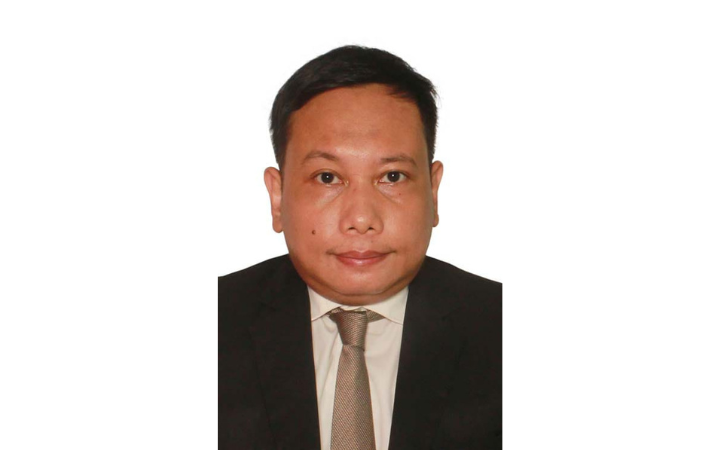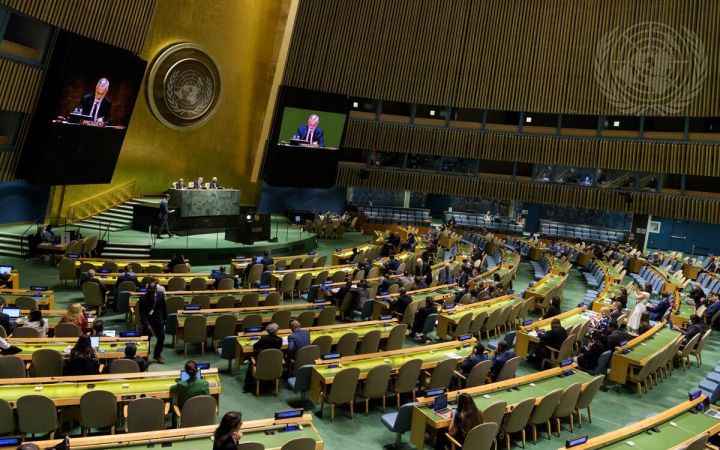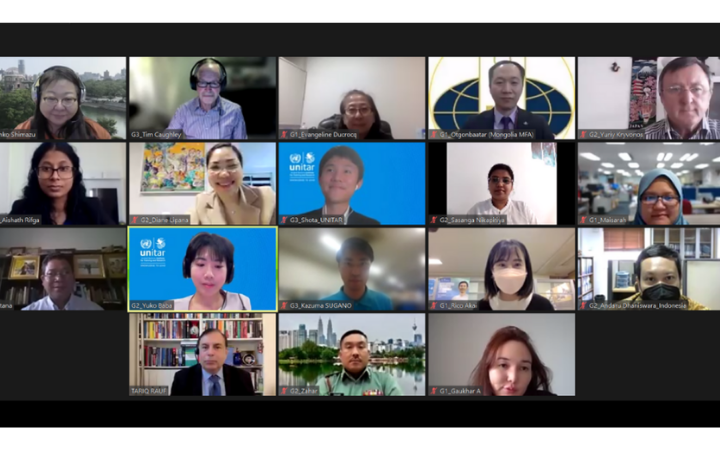UNITAR Hiroshima Training Programme on Nuclear Disarmament and Non-Proliferation
.
Indonesia: A strong position on nuclear disarmament
October 2022, Hiroshima, Japan - Andaru Dhaniswara is First Secretary at the Directorate for International Security and Disarmament, Ministry of Foreign Affairs of Indonesia. In early 2022, he participated in the UNITAR Hiroshima Training Programme on Nuclear Disarmament and Non-Proliferation. Andaru found the programme incredibly rewarding. Not only was the technical content relevant to his work; he feels empowered to engage in international negotiations towards nuclear non-proliferation.
Indonesia: A strong position on nuclear disarmament
Indonesia has long held a strong position on complete disarmament and non-proliferation. The country aligned its nuclear activities with International Atomic Energy Agency safeguards.
Indonesia also ratified the Treaty on the Non-Proliferation of Nuclear Weapons (NPT) in 1979 and became one of the first 50 signatories to the Treaty on the Prohibition of Nuclear Weapons (TPNW), which entered into force in 2021. Further, Indonesia is also signatory to the Southeast Asia Nuclear Weapon-Free Zone (SEANWFZ) Treaty, which entered into force in 1997 and commits signatories to not develop or possess nuclear weapons.
Despite Indonesia's stance, nuclear threats to the country and region persist. And the SEANWFZ protocol that binds nuclear-weapon states to respect the regional nuclear-weapon-free zone remains unsigned. The existence of renewed threat of nuclear war was acknowledged as crisis in Ukraine heighten, as well as threats to the safety of nuclear energy facilities.
Entering the complex world of nuclear disarmament
Andaru wants to do his part to establish a world based on freedom and perpetual peace. When he took up his current post in 2021, Andaru found his lack of experience in nuclear disarmament challenging. Up until then, he had worked mainly in economic affairs. And while Andaru gained valuable experience in international security as a member of Indonesia's United Nations Security Council team during the country's 2019-2020 non-permanent membership, his focus then was on weapons of mass destruction and other conventional weapons.
But nuclear disarmament, Andaru finds, is a particularly dynamic and nuanced field. So when his supervisor suggested the UNITAR training, he was eager to join.
Developing hard skills with the UNITAR training
UNITAR Division for Prosperity, with its base in Hiroshima, works closely with Hiroshima to promote a world free of nuclear weapons. As one of its key programmes, the UNITAR Hiroshima Training Programme on Nuclear Disarmament and Non-Proliferation builds the understanding and skills of diplomats from Asian countries to engage effectively in negotiations on disarmament and non-proliferation. The programme reminds diplomats of the horrors of nuclear weapons and cements their commitment to a future without such weapons.
Andaru found the training to be highly relevant to his work. He now better understands the frameworks and mechanisms underlying nuclear disarmament and non-proliferation and feels better equipped to prepare Indonesia's positions on disarmament.
Andaru also liked the negotiation simulation in the training, as it taught him how he may negotiate with nuclear-weapon states and nuclear umbrella states. Andaru says it helped him recognize the importance of identifying the differences between Indonesia's position and that of, say, the non-aligned movement.
At the time of the UNITAR training, Indonesia was preparing to take part in the TPNW Meeting of State Parties (June 2022, Vienna) and the Tenth NPT Review Conference (August 2022, New York), and Andaru expressed his hopes to use his newly developed skills to support his colleagues as they prepare for and attend the conferences.
Reassurance to fellow diplomats
Andaru's message to fellow diplomats working towards disarmament is to continue seeing the deep relevance of non-proliferation and nuclear disarmament, especially as current global dynamics rock the international stage.
I still believe that disarmament is the issue that should be prioritized by countries, especially this year when the Review Conference is organized.
We have to achieve peace first, before we achieve the goals of any other developments, in economics and in social fields.
UNITAR Division for Prosperity will soon open the call for nominations for the 2023 UNITAR Hiroshima Nuclear Disarmament and Non-Proliferation Training Programme to train government officials and diplomats in Asia.
---
Andaru's views are his own and do not represent those of Indonesia's Ministry of Foreign Affairs.
About UNITAR
The United Nations Institute for Training and Research (UNITAR) is a dedicated training arm of the United Nations. In 2021, UNITAR trained 370,139 learners around the world to support their actions for a better future. In addition to our headquarters in Geneva, we have offices in Hiroshima, New York, Bonn and various networks around the world.
One of the eight divisions of UNITAR, the Division for Prosperity, based from Hiroshima Office and Geneva Headquarters, seeks to shape an inclusive, sustainable and prosperous world. World-class learning and knowledge sharing services on entrepreneurship, leadership, finance and trade, digital technologies, and nuclear disarmament and non-proliferation are offered. We empower individuals from developing countries - especially women and young people - to address inequalities. Our alumni are making a difference in least-developed countries, countries emerging from conflict, and small island developing states.









